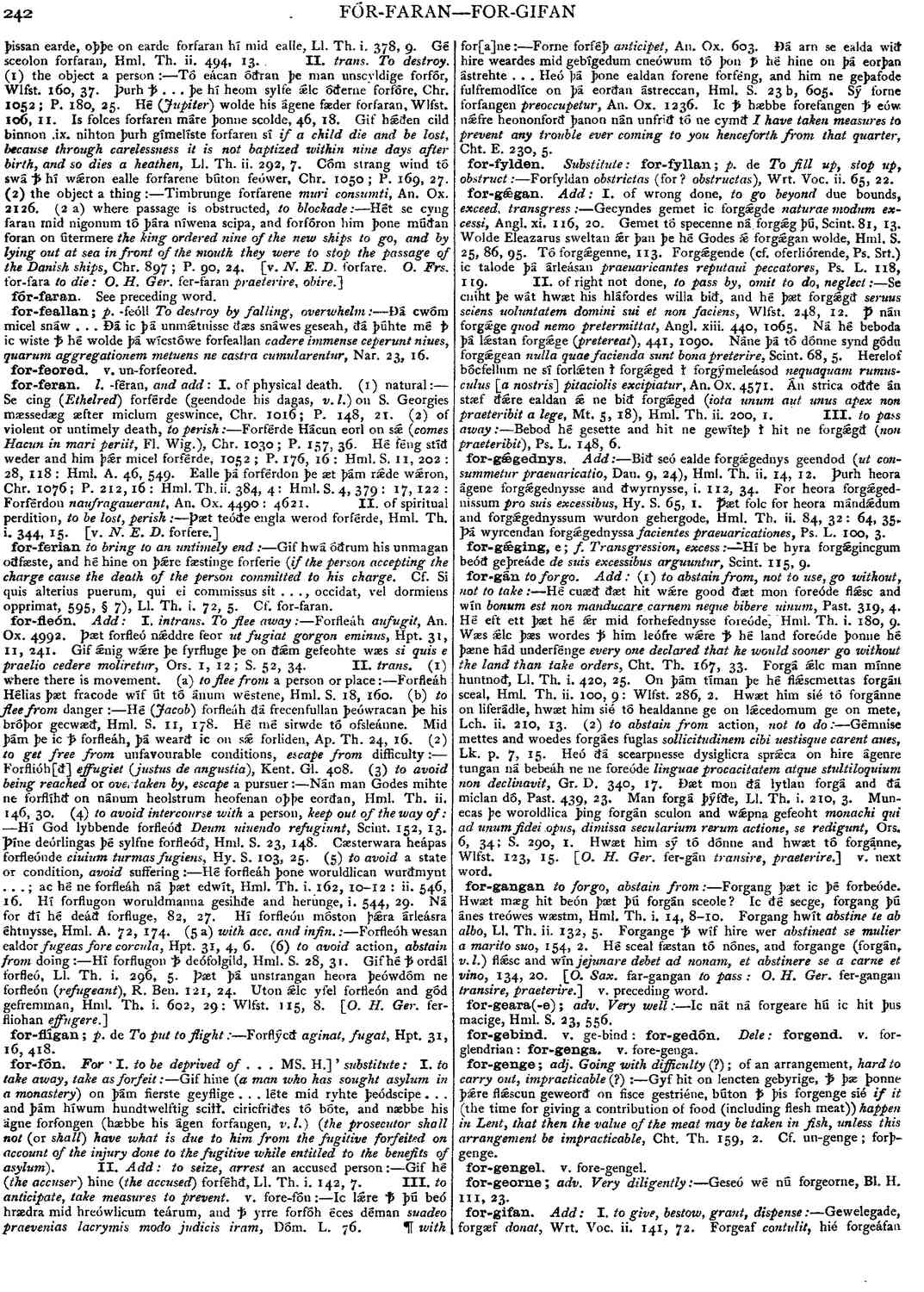for-gán
- verb
-
Hé cuæð ðæt hit wǽre good ðæt mon foreóde flǽsc and wín
bonum est non manducare carnem neque bibere uinum,
- Past. 319, 4 .
-
Hé eft ett þæt hé ǽr mid forhefednysse foreóde,
- Hml. Th. i. 180, 9 .
-
Wæs ǽlc þæs wordes ꝥ him leófre wǽre ꝥ hé land foreóde þonne hé þæne hád underfénge
every one declared that he would sooner go without the land than take orders,
- Cht. Th. 167, 33 .
-
Forgá ǽlc man mínne huntnoð,
- Ll. Th. i. 420, 25 .
-
On þám tíman þe hé flǽscmettas forgán sceal,
- Hml. Th. ii. 100, 9 :
- Wlfst. 286, 2 .
-
Hwæt him sié tó forgánne on liferádle, hwæt him sié tó healdanne ge on lǽcedomum ge on mete,
- Lch. ii. 210, 13 .
-
Gémnise mettes and woedes forgáes fuglas
sollicitudinem cibi uestisque carent anes,
- Lk. p. 7, 15 .
-
Heó ðá scearpnesse dysiglicra sprǽca on hire ágenre tungan ná bebeáh ne ne foreóde
linguae procacitatem atque stultiloquium non declinavit,
- Gr. D. 340, 17 .
-
Ðæt mon ðá lytlan forgá and ðá miclan dó,
- Past. 439, 23 .
-
Man forgá þýfðe,
- Ll. Th. i. 210, 3 .
-
Munecas þe woroldlica þing forgán sculon and wǽpna gefeoht
monachi qui ad unum fidei opus, dimissa secularium rerum actione, se redigunt,
- Ors. 6, 34 ;
- S. 290, 1 .
-
Hwæt him sý tó dónne and hwæt tó forgánne,
- Wlfst. 123, 15 .
Bosworth, Joseph. “for-gán.” In An Anglo-Saxon Dictionary Online, edited by Thomas Northcote Toller, Christ Sean, and Ondřej Tichy. Prague: Faculty of Arts, Charles University, 2014. https://bosworthtoller.com/45679.
Checked: 1